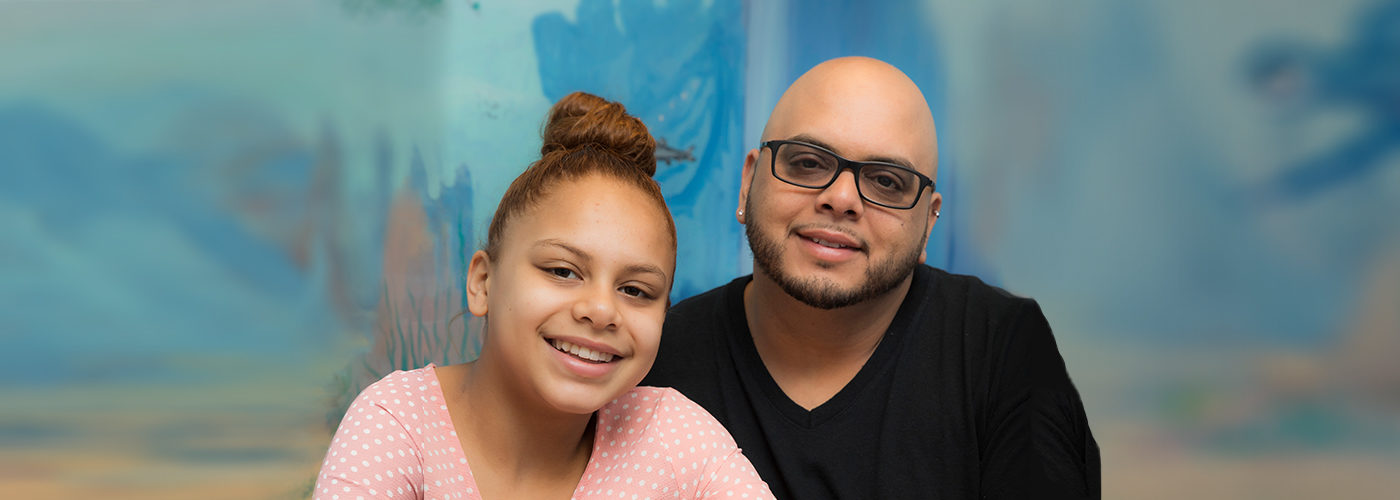Mya is a superstar by any definition. The cheerful 11-year-old, with a smile that lights up the room, is not only an honors student and a talented singer, she is an all-star swimmer setting national records, most recently winning a national competition with her time in the 50 meter butterfly.
Mya attends practice daily, regardless of how she feels. “She doesn’t stop,” said her father Henry. It is that motivation and determination that Mya is channeling now more than ever. This young girl is currently battling a brain tumor which is slowly taking her eyesight.
This is not the first time that Mya has fought cancer. At 4 years old she was diagnosed with a brain tumor involving her optic chiasm (the spot in the brain where the optic nerves come together.) She had biopsy that showed she had a low grade glioma, which is very treatable. However, due to the location she was at risk for severe side effects from the tumor, particularly vision loss. She was treated successfully with chemotherapy at the Children’s Cancer Institute at Hackensack Meridian Health.
In November 2017, Mya began experiencing renewed problems with her eyesight. An exam indicated that she has new and significant loss of vision. While her tumor appears stable on MRI, the vision loss has required Mya to restart chemotherapy. Derek Hanson, M.D., Head of Pediatric Neuro-Oncology, enrolled Mya in a phase I drug trial, being funded by Tackle Kids Cancer. In addition to her chemotherapy, Mya receives the medication mebendazole, a decades old anti-parasitic medication shown to decrease the size of certain neurological tumors. It is Dr. Hanson’s hope that adding this experimental drug will treat the tumor more effectively and save Mya’s sight.
Hearing that the cancer had returned and Mya’s sight was fading was devastating for Henry. “I can’t help but ask why?” he said. “But, Mya doesn’t complain. Her attitude doesn’t change. She is still motivated on even the worst days.”
“While the prognosis for low-grade gliomas is good, their effects can be devastating when they arise in delicate areas of the brain. Very few new treatments have been developed for these tumors in the past two decades, and there is still a need for more effective, less toxic therapies. By repurposing an FDA-approved drug, we have been able to bring a promising therapy into the clinic quickly. As an oral drug with few side effects, mebendazole has the potential to dramatically improve the quality of life for children undergoing treatment for low-grade gliomas,” explains Dr. Hanson.
The treatment is not without challenges. Mya has some side effects from the treatment, and her eyesight can be quite blurry at times.
The good news is that the treatment appears to be working. The tumor has not grown, and her eye exams indicate that her vision is not worsening. Mya, always the achiever, has set her own goals high. She wants to swim competitively in college and then who knows? “If I could, I would do everything!” she announced enthusiastically. Henry looked at his daughter with love and admiration. “She is stronger than I am. She is my hero.”
